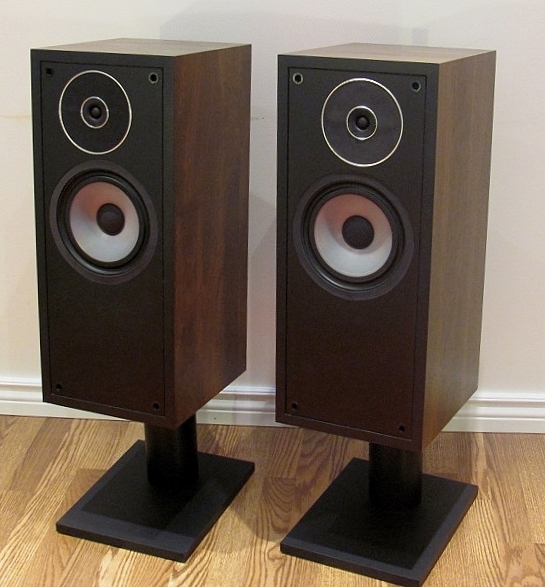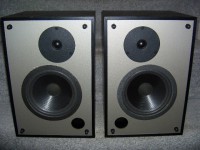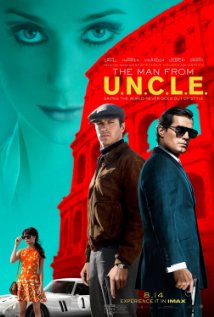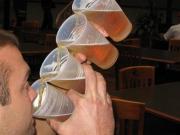-
Posts
1,963 -
Joined
-
Last visited
-
Days Won
3
Content Type
Profiles
Forums
Events
Gallery
Everything posted by pecass
-
Da da Srpska vrsto,zapitaj se... http://www.blic.rs/kultura/vesti/ovo-je-prvi-srpski-naucno-fantasticni-film/rvmvqnr
-
posle novih saobracajnih zakonskih mera ima njivu i traktor da kupim...
-
Iskreno receno ja sam moje nabavio od dopisnog kolege sa foruma za 130 e sa mrezicama ,zamenjenim vesanjem i bez i jedne ogrebotine, a secam se davnih dana 80-ih kada sam ih slusao u predstavnistvu na uglu 29-og i nisam imao para da ih kupim.... U klasu malih kutija slicnog karaktera zvuka bih jos stavio i: Tannoy Eclipse mozda (E 11 mada su drugacije) Wharfadale Diamond Kef 101.2 IMF Compact 2 Tannoy Mercury S (ne E 15) koje sam imao ili imam i zao mi je sto ponekad nemam Sound Wall (ako se secate JBL,Infinity salona u Srpskih vladara kod Sreje i Duleta) pa da menjam kombinacije po raspolozenju...
-
-
Kao vlasnik ESM 4 podrzavam ranije navedeno u potpunosti Sigurna zamena vesanja ako to vec nije uradjeno i refresh - mala kutija prijatnog zvuka i zapanjujuceg prostora.
-
Samo za ljubitelje Dooobrog zvuka
-
Ovo boli http://www.kupujemprodajem.com/Zvucnici-Heybrook-HB-1-par-zvucnika-8-28528802-oglas.htm?filter_id=25669
-
Guy je do j... prvi Dolby Athmo sa razlogom + ODLICAN FILM (vicem jeste) http://www.imdb.com/title/tt1638355/ Soundtrack ozivljava vreme i prostor celog filma Preporuka za zabavu!
-
http://www.telegraph.co.uk/culture/music/worldfolkandjazz/11368211/Eberhard-Weber-Jubilee-Concert-Stuttgart-review-magical.html
-
Uz Slava mu za mene najbolji: https://www.youtube.com/watch?v=cuC4XwjIL4k David Bowie had planned to use producer Tony Visconti on the album, as the two had worked together on Bowie's previous four studio albums. However, he chose Nile Rodgers for the project, a move that came as a surprise to Visconti, who had set time aside to work on Let's Dance. Visconti called [Bowie's personal assistant] Coco and she said: "Well, you might as well know - he's been in the studio for the past two weeks with someone else. It's working out well and we won't be needing you. He's very sorry." The move damaged the two men's relationship and Visconti did not work with Bowie again for nearly 20 years (until 2002's Heathen).[6] Rodgers later recalled that Bowie approached him to produce his album so that Bowie could have hit singles.[7] Bowie, having just signed with EMI Records for a reported $17.5 million, worked with Rodgers to release a "commercially buoyant" album that was described as "original party-funk cum big bass drum sound greater than the sum of its influences." The album's influences were described as Louis Jordan, the Asbury Jukes horn section, Bill Doggett,Earl Bostic and James Brown.[1] Bowie spent three days making demos for the album in New York before cutting the album, a rarity for Bowie who, for the previous few albums, usually showed up with little more than "a few ideas."[8]Despite this, the album "was recorded, start to finish, including mixing, in 17 days," according to Rodgers.[9] Stevie Ray Vaughan met Bowie at the 1982 Montreux Jazz Festival in Switzerland. After Vaughan's performance, Bowie was so impressed with the guitarist he later said "[he] completely floored me. I probably hadn't been so gung-ho about a guitar player since seeing Jeff Beck with his band the Tridents." Of Bowie, Vaughan said, "to tell you the truth, I was not very familiar with David's music when he asked me to play on the sessions. ... David and I talked for hours and hours about our music, about funky Texas blues and its roots - I was amazed at how interested he was. At Montreux, he said something about being in touch and then tracked me down in California, months and months later."[1] In a contemporary interview, Vaughan described the recording sessions for the album: Unusually, Bowie played no instruments on the album. "I don't play a damned thing. This was a singer's album."[1] A few years later, Bowie discussed his feelings on the track "Ricochet" (which Musician magazine called an "incendiary ballroom raveup")[1] from this album:
-
DA Konvertna HI Rezolutna LP vinilna Vam bila
-
Reklo bi se i koncert i muzika i dokumentarni film o Nemackom osvajanju USA http://www.rammstein.de/en/in-amerika Odlican kvalitet i videa i zvuka sa interesantnim pogledom na USA - pa ko voli
-
Taj album je definitivno los odrezak - isti slucaj i kod mene - izgleda da je na carini ne vole...
-
Dobro reciklirana Epizoda IV sa odicnim glumcima i prilagodjena danasnjem mentalitetu i ciljnoj grupi ( cak je scenario bio prilagodjen novom liku u slengu nacije...) 3D pametno iskoriscen (dotakao sam Space destroyer) i dobra akciona rezija. p.s. Al to sto su odstranili HF-a u prvom nastavku - Neoprostivo
-
UAAAAAAAAAAAAAAA CENZURA!
-
Sami ste krivi,to sa BG-om nema nikakvih dodira - da je VIPol - elita u NI onda bi smo mi vas prozivali. a sajam je bio ogledalo situacije u kojoj se nalazimo ko je mogao dosao je prikazao je sta je imao obzirom na situaciju i trziste bar nesto u odnosu na nista sto nas okruzuje...
-
BG kao crna rupa usisava sve ekonomske tokove i devastira ostatak Srbije. Hocete vec jednom da nam se skinete sa BG i da za sve sto nevalja pogledate u ogledalo i kazete : JA SAM IH IZABRAO...
-
Popularnost po svaku cenu ipak ima svoju cenu...(a nekada su producenti bili producenti a ne prodavci magle...)
-
Za vjek i vjekov Amen!











